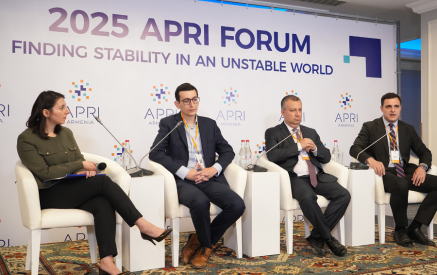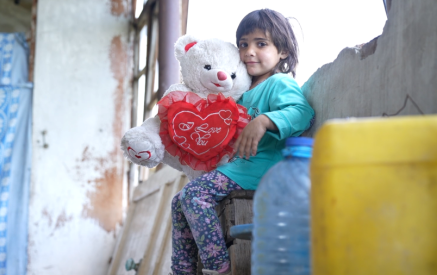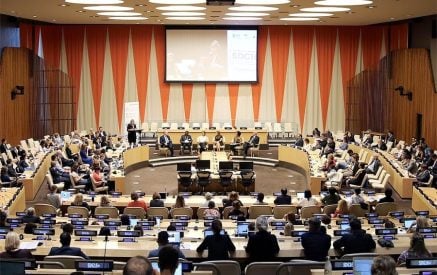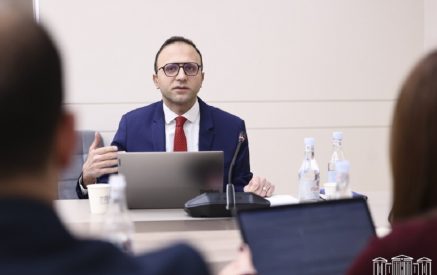
Narek Avagyan, 57, was born and lives in Tsamtsor. He went to school there, and then he was conscripted into the Soviet Army. After army he went to Martakert and apprenticed to become a machine operator. ‘Whole my life I have lived here and voluntarily participated in Artsakh liberation. I was tank-man,’ says Narek.
At war he got burns and contusion times without number. But most of all he suffers from the absence of his legs.
‘At first I had only burns. Later a mine exploded near the Azerbaijani school in Hadrut and the splinter injured my right leg. I didn’t pay attention first. I wasn’t thinking it was serious. But in the end I lost both my legs,’ recalls Narek.
Read also
It is 8 years since Narek has been trying to get used to his current situation and confesses it was very hard in the beginning. ‘Can you imagine not being able to sit and stand and not to move at all?’
Today he moves only in a wheelchair. He also drives his old orange “Moskvich” which he has remade and adapted for himself. In spite of his condition, he never sits doing nothing. With great difficulty, yet he continues working and repairing machines.
‘Can I be any help staying at home? I cannot stand doing nothing. I shall work till my last day, I shall help my children. A family cannot live with bare wages,’ says Narek.
Narek lives with his old parents and youngest son who has recently been demobilized. His daughter and elder son are married and live separately. His wife got emotional shock during the war. Narek says they took care of her for 12 years, but couldn’t save her life. Yet, Narek isn’t complaining of all that has happened to him. ‘One should rely on himself, nobody can help you’ he says.
The budget of the Avagyan family is 90 thousand drams ($ 233) per month – Narek’s and his parents’ pensions. ‘Since I wasn’t operated on at a military hospital, I don’t get military pension. I have applied for several times, they demanded some documents, but nothing changed. They wanted some baksheesh, but I didn’t have any means then,’ tells Narek.
Narek assures that at first glance their income is not too small, but there is no shop in the village, and they have to drive to the regional center, Hadrut, several times a month to buy necessary things.
Any change of weather affects Narek, he feels strong spasms in the area of his amputated legs. Such spasms may last an hour or several days, sometimes – a week.
‘I’ll hardly have 3 liters of blood in my organism, that’s why I suffer from heat and cold. In such condition the medicine won’t help. I only squeeze tightly my legs, or wind firmly with cotton bandage,’ he says.
The pains become so tense that Narek cannot sleep. He says the pain, in its turn, evokes memories of the war, and there is no escape of them.
‘The pain goes to my head, and I recall the paths that we passed, the dangers we escaped with guys. I got burnt in the tank so many times… And what is the life now! To dispel the memories, I go to the balcony to smoke. The day’s coming but I am still with my memories, suffering of them,’ he says.
Narek hasn’t seen a doctor for several years now. He says it’s just a waste of time and nerves. His legs won’t be back all the same.
He has heard they can help him only abroad, with their modern prostheses, but he isn’t even dreaming of it. He can never afford it.
‘I was waiting since the morning for the daughter-in-law of a cousin to help me get to the car. Now I can independently go up and down the stairs, but moving on an uneven ground in a wheelchair is impossible,’ says Narek.
Narek is doing the last check-up of his car to make sure it will not to stop on the half-way, for he is driving alone to help his son.
Knar BABAYAN
Your visits to the families we introduce will turn into a new-year miracle for them. You may also support them by transferring money to the account mentioned in the following link: In the “RESULTS” section of “Hye Dzmer Pap” charitable foundation’s website you may as well find some examples of joint solution of the social problems:
























































